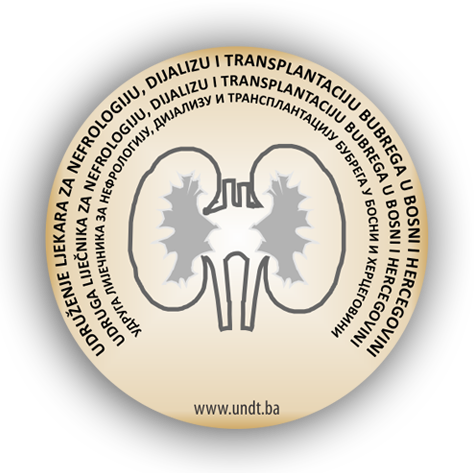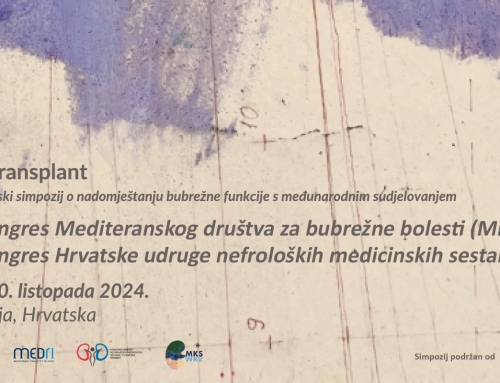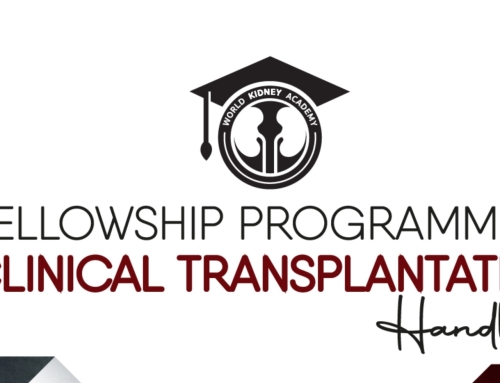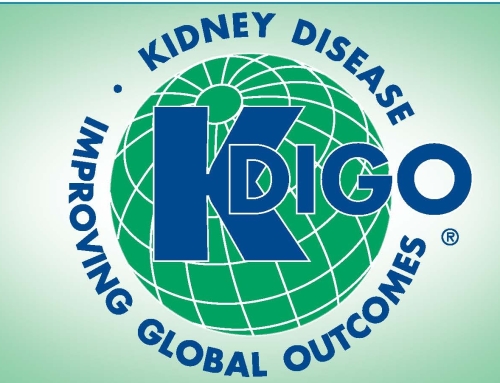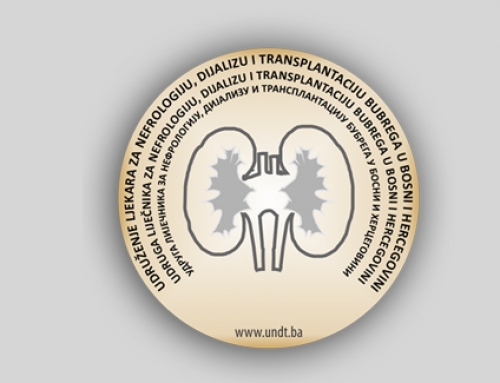
Global Kidney Academy – CKD NOC 2013 – Course Outline
The Global Kidney Academy launches in 2013 its first NOC (Nephrology Online Course); the CKD NOC. This is an entirely Online and Interactive Nephrology course focusing on all key aspects of chronic kidney disease (CKD). The duration of the course is 4 months and a Certification of successfully completion of the course will be issued by the Global Kidney Academy.
The Global Kidney Academy (GKA)
The GKA is a company registered in the UK specializing in Nephrology Education with emphasis on emerging countries and their young nephrologists. It provides education through a number of dedicated channels including On Site Master Classes as well as an On Line Academy (OLA). The OLA provides a range of educational resources including lectures, Journals Blogs and literature reviews as well as live and interactive discussion Forum.
From 2013, GKA and OLA also provide education through NOCs; starting with the CKD NOC.
CKD NOC: Mission and Philosophy
The mission of the GKA CKD NOC is to provide Online comprehensive, interactive and affordable course on CKD. It also aims to train young emerging Nephrologists to become Experts and Teachers of CKD.
The Philosophy of the CKD NOC is to learn, within the student’s own environment, aspects of CKD that are most relevant to his/her daily practice. This is aimed at generating in the course students an attitude of lifelong learning and critical thinking.
This democratization of Nephrology learning is at the heart of the Philosophy of the Global Kidney Academy and its NOCs aiming to reach as many as possible and providing Education for All at a nominal and affordable price.
Also, the GKA’s philosophy is to foster emerging countries Nephrology leadership through interactive guided learning.
CKD NOC: Objectives:
1. To make of the student a Lifelong Critical Thinker & Learner
2. To make of the student a CKD Expert
3. To make of the student a CKD Leader
4. To make of the student a CKD Teacher
Course Duration
Registration is open from now until 1st June 2013
Course starts 1st October 2013
Course closes 31st January 2014
Course Fees
Standard Registration Fees: $500
Early Registration Fees: $300
Payable at registration and non-refundable.
Duration: 4 months
CKD NOC Organisers
Professor Meguid El Nahas, PhD, FRCP
Professor of Nephrology University of Sheffield and
Chairman of the Global Kidney Academy
Sheffield, UK
Professor Arif Khwaja, PhD, FRCP
Consultant Renal Physician
Sheffield Kidney Institute
Director, GKA On Line Academy (OLA)
Sheffield, UK
Dr Matthew Faulds, FRCA
Physician Intensivist
Sheffield Teaching Hospitals Trust
Sheffield, UK
CKD NOC Contributors
Professor Meguid El Nahas (UK)
Professor Arif Khwaja (UK)
Dr Matthew Faulds (UK)
Dr Bisher Kawar (UK)
Dr Shereen Saddiqui (UK)
Dr Aimun Ahmed (UK)
Professor Rashad Barsoum (Egypt)
Professor Pierre Delanaye (Belgium)
Professor Raymond Vanholder (Belgium)
Prof Marc De Broe (Belgium)
Professor Giorgina Piccoli (Italy)
Professor Carmine Zoccali (Italy)
Professor Richard Glassock (USA)
Professor Bertrand Kasiske (USA)
Professor Rossini Botev (USA)
Professor Sarala Naicker (RSA)
Professor Vivek Jha (India)
CKD NOC Administrator
Mrs Denise Smith
enquiries@globalkidneyacademy.co.uk
CKD NOC Structure and Content
The CKD NOC consists of:
I. Modules
1. CKD Classification and Epidemiology
2. CKD Natural History and Mechanisms of Progression
3. CKD Investigations and Management
4. CKD Complications
a. Anemia
b. MBD
c. CVD
Each module will have:
• Lectures
• References for further reading
• Formative assessment (5 MCQs)
• Reflection area (combined with feedback for NOC)
Student activity will be monitored; they will be required to complete each module including reflective learning.
Each module should be followed by:
• Searching of literature for the evidence behind the statements/slides
II. Work-based CKD Reflective Practice
This is an essential part of the course whereby students undertake a Reflective Practice Exercise (see Appendix 1: Template for Reflective Practice).
Reflective practice encourages the students to develop and reflective practice and learning attitude to his/her day to day clinical practice.
It consists of recording a practice event in details along with its practice implications and resulting learning experience. It would be expected that on a weekly basis the students record in their Practice and Reflection Portfolio, clinical events an disuse that took place during that week at their workplace according to the template provided encouraging students learning and reflection on their practice and coaching by the course tutors.
This should be recorded in the student’s learning portfolio and will be reviewed by the course tutor.
This section of the course aims to generate in the students a habit and lifelong attitude to learning based on reflective practice and critical thinking.
III. Lead Case Discussions
Students will be required to initiate and conduct 3 case discussions during the first 3 months of the 4 months course.
These should be posted by the students on OLA and based on real life practice.
Posts will be made to an OLA Forum area open to all registered users.
Students should take a leadership role and lead the discussion.
Students should provide a summary and conclusion to the case based on evidence derived from the reading of the related literature.
IV. Monitoring the CKD literature / News
Students will be expected to monitor the CKD literature and outline/record their reading in their dedicated portfolio.
They should also state after each item read its validity, utility and learning value.
V. Publications Critical Appraisal Exercises
A minimum of 3 critical appraisal exercises of published material to be completed; these could be published papers, clinical trials, review articles or guidelines.
Critical appraisal exercises should not exceed 500 words.
A model appraisal template is provided in Appendix 2.
VI. Recommended Self-Learning
Every student of the CKD NOC is advised during the duration of the course to have undertaken the following training and obtain evidence of successful completion:
1. An On Line Training of Good Clinical Practice (GCP)
2. An On Line Training or Clinical Ethics
3. An On Line Training on Critical Thinking/Appraisal and Reflective Learning
4. An On Line Training Clinical Audit and Governance
These educational tools are readily and freely available on the internet.
On Line Mentoring (OLM)
The CKD NOC organisers and faculty will be monitoring the activities of the enrolled students as well as communicating with them on a regular basis, providing comments and feedback on their activities.
The CKD Organisers/Faculty will also put aside a weekly slot to allow direct, online, communication between the students and the organisers discussing issues and answering short questions. This will take the form of an online Forum thread.
In addition, the CKD NOC manager and administrator will be in regular communication with the students online updating them of any issues or developments relating to their educational activities.
The Global Kidney Academy puts a lot of emphasis on these regular online contacts that provide the students with direct access to the Faculty and the NOC administration.
CKD NOC Assessment and Evaluation
Formative
1. Module completion including MCQ’s
2. Publications Critical Appraisal Exercises (3 minimum)
3. Monitoring the CKD literature/news and reflection (3 minimum)
4. Lead Case discussions on OLA Forum (3 cases; contributes 25%)
5. Work-based Reflective Practice (3 cases/minimum; contributes 25%)
Summative
1. Final MCQ (50 MCQs, pass mark 80%; contributes 50%)
CKD NOC Certification
Successful students will be awarded the Global Kidney Academy NOC Certificate.
They will also be made Honorary Members of the GKA OLA CKD faculty.
They will also qualify to become GKA Ambassadors for CKD in their countries.
Holders of the Global Kidney Academy NOC Certification will also be given privileged (at reduced fee) access to subsequent GKA NOCs of their choice.
